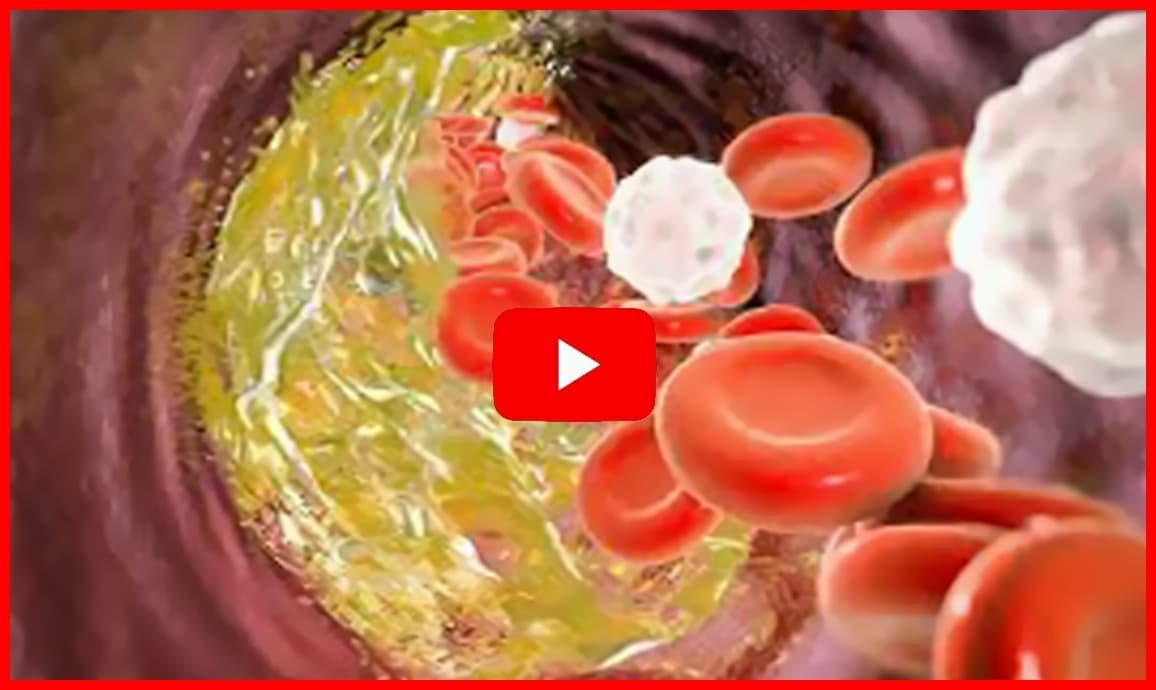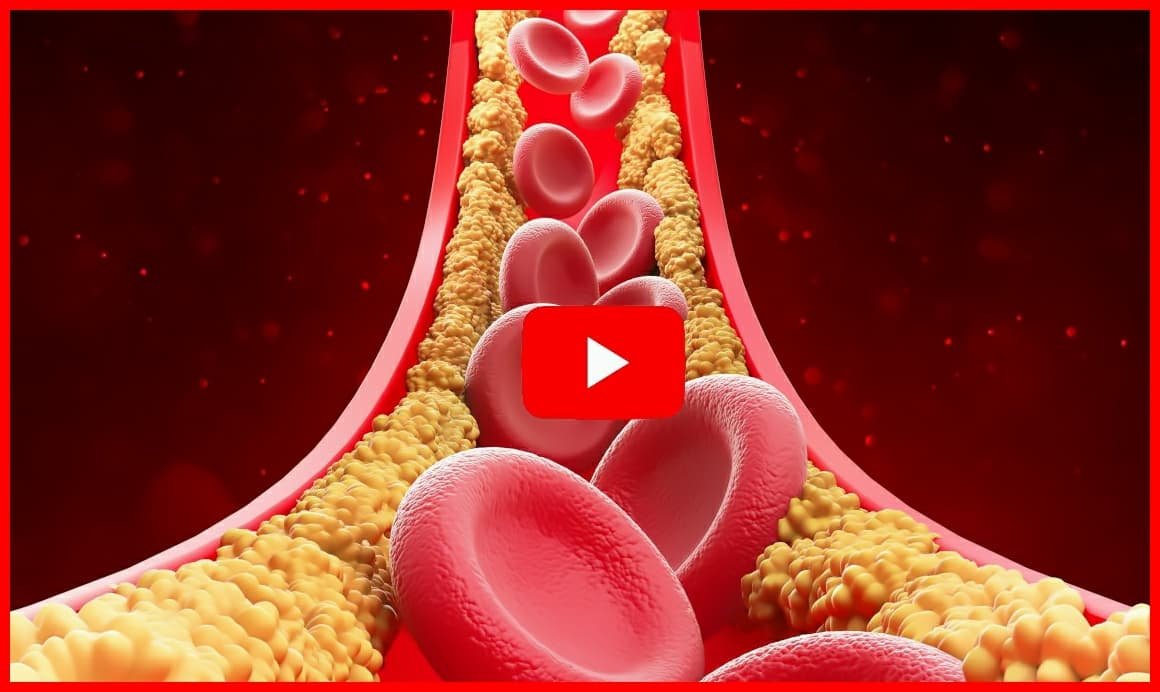Signs of High Cholesterol: The Silent Threat to Your Heart
High cholesterol is often called the “silent killer”—and for good reason. It rarely presents obvious symptoms until significant cardiovascular complications arise. This stealthy nature makes early detection challenging, yet critical. Regular blood tests and health screenings are essential, particularly for individuals with risk factors such as family history of heart disease, obesity, sedentary lifestyles, smoking, or poor dietary habits.
Chest Pain and Angina
One of the more noticeable signs of high cholesterol is chest discomfort, often referred to as angina. Plaque buildup narrows coronary arteries, restricting blood flow to the heart muscle. The resulting pain or tightness can be a warning that your heart is under strain. Left unchecked, this narrowing may eventually trigger a heart attack. Recognizing chest pain early and seeking medical attention can be lifesaving.
Peripheral Artery Disease (PAD)
High cholesterol can also affect arteries outside the heart, leading to peripheral artery disease (PAD). This condition reduces blood flow to the limbs, producing symptoms like pain, numbness, or weakness in the legs or arms. Because these symptoms are subtle and often mistaken for other issues, PAD serves as an important clue that vascular health may be compromised.
Xanthomas: Visible Fatty Deposits
In some cases, high cholesterol manifests through physical signs called xanthomas. These yellowish fatty deposits develop under the skin, often around the eyelids, elbows, or knees. While sometimes dismissed as cosmetic concerns, xanthomas can indicate familial hypercholesterolemia, a genetic disorder causing extremely high cholesterol and increased cardiovascular risk. Their presence should prompt immediate evaluation and monitoring.
Stroke and Cerebrovascular Symptoms
Elevated cholesterol can also increase the risk of stroke. When arterial plaques rupture or block blood flow to the brain, symptoms may appear suddenly, including:
-
Weakness or numbness on one side of the body
-
Difficulty speaking or understanding speech
-
Vision changes or blurred vision
These signs are often late indicators of serious vascular problems, underscoring the importance of routine cholesterol monitoring before symptoms arise.
Early Detection Saves Lives
Because high cholesterol is mostly asymptomatic, proactive health management is crucial. Regular check-ups, blood tests, and awareness of subtle signs allow for timely interventions that can dramatically reduce the risk of heart attacks, strokes, and other cardiovascular complications.
A Holistic Approach
Maintaining healthy cholesterol levels requires a combination of lifestyle modifications, dietary management, and medical oversight. Awareness of these signs—combined with preventive care—forms the foundation of lifelong heart health. Recognizing the silent threats early empowers you to take control, protect your cardiovascular system, and cultivate overall well-being.
Cholesterol-Lowering Foods: Nourishing Your Heart Naturally
What you eat profoundly influences your cholesterol levels and overall cardiovascular health. By intentionally incorporating specific cholesterol-lowering foods into your diet, you can reduce LDL (“bad”) cholesterol while supporting HDL (“good”) cholesterol. Strategic nutrition not only promotes heart health but also boosts energy, supports disease prevention, and enhances overall well-being.
Soluble Fiber: The Gentle Cholesterol Cleanser
One of the most effective tools in managing cholesterol is soluble fiber. Foods rich in soluble fiber—such as oats, barley, beans, lentils, apples, oranges, and pears—bind to cholesterol molecules in the digestive tract, preventing their absorption into the bloodstream. This natural process helps eliminate excess LDL cholesterol from the body.
Regularly consuming these fiber-rich foods can produce measurable improvements in cholesterol over time, especially when paired with other healthy eating habits.
Healthy Fats: Friends, Not Foes
Replacing saturated fats with heart-healthy unsaturated fats is critical for a balanced lipid profile.
Monounsaturated Fats
Found in olive oil, avocados, almonds, and walnuts, monounsaturated fats help lower LDL while supporting HDL cholesterol.
Polyunsaturated Fats and Omega-3s
Fatty fish—like salmon, mackerel, sardines, and albacore tuna—are rich in omega-3 fatty acids, which reduce triglycerides, combat inflammation, and enhance overall cholesterol balance. These fats act as protective allies for your heart, making meals both delicious and therapeutic.
Plant Sterols and Stanols: Nature’s Cholesterol Blockers
Plant sterols and stanols, naturally found in fruits, vegetables, nuts, and seeds, have the remarkable ability to block cholesterol absorption in the intestines. Fortified foods, including certain margarines, yogurt drinks, and cereals, often contain added sterols and stanols, providing an additional boost to help lower LDL levels.
Avoid Harmful Fats and Refined Carbs
Limiting trans fats and refined carbohydrates is essential. Trans fats—common in commercially baked goods, fried foods, and margarine—raise LDL while lowering HDL, directly harming heart health. Reducing intake of sugary foods, white bread, pastries, and desserts also prevents weight gain and insulin resistance, both of which negatively affect lipid profiles.
A Balanced, Sustainable Approach
The key to long-term cholesterol management is diversity and moderation. A diet rich in fiber, healthy fats, plant sterols, and minimally processed foods, combined with regular exercise and weight management, forms the cornerstone of a comprehensive strategy to support heart health. Mindful eating and informed food choices help prevent disease while fostering sustainable, lifelong wellness.
Incorporating these foods into your daily routine isn’t just a dietary choice—it’s an act of self-care for your heart, your body, and your future.
🏆 Lipid Control Plus is a multi-ingredient food supplement designed for people who want to take comprehensive care of their cholesterol levels, liver health and cardiovascular system. The product has been created on the basis of 8 natural ingredients.
🏆 Regular use of Lipid Control Plus helps to take care of the lipid profile. The product supports detoxification and the flow of digestive juices. Lipid Control Plus also prevents the accumulation of fats and improves their removal by the liver. Consumers will appreciate that the product supports heart health and supports proper liver function.
Reducing Cholesterol Naturally: Holistic Strategies for Heart Health
Managing cholesterol naturally requires a comprehensive approach that integrates diet, exercise, stress management, and lifestyle adjustments. While medical guidance remains essential, adopting natural strategies empowers you to take control of your heart health and improve lipid profiles without relying solely on medications.
Dietary Foundations: Nourishing for Balance
Diet plays a central role in reducing cholesterol. Prioritizing soluble fiber, healthy fats, and plant sterols can significantly lower LDL (“bad”) cholesterol while supporting HDL (“good”) cholesterol.
-
Soluble fiber: Foods like oats, barley, beans, lentils, apples, and oranges bind cholesterol in the digestive tract, reducing absorption and promoting gradual LDL reduction.
-
Healthy fats: Replacing saturated fats with monounsaturated and polyunsaturated fats—found in olive oil, nuts, seeds, and fatty fish—supports a balanced lipid profile.
-
Plant sterols: Present in fruits, vegetables, and fortified foods, plant sterols block cholesterol absorption, offering an additional heart-protective effect.
Sustained adherence to these dietary habits can produce meaningful improvements in cholesterol levels and overall cardiovascular health over time.
Exercise: Movement for a Healthy Heart
Regular physical activity is a cornerstone of natural cholesterol management. Aerobic exercises—including brisk walking, jogging, cycling, or swimming—for at least 150 minutes per week can:
-
Increase HDL cholesterol
-
Lower LDL cholesterol and triglycerides
-
Promote weight loss
-
Reduce blood pressure
-
Strengthen overall cardiovascular function
Even modest weight loss—5–10% of body weight—can dramatically improve cholesterol levels and reduce heart disease risk.
Stress Management: Calming the Heart and Mind
Chronic stress elevates cortisol, which can increase cholesterol and blood pressure. Effective stress-reduction techniques include:
-
Meditation and mindfulness
-
Deep breathing exercises
-
Yoga and gentle movement
Combining stress management with adequate sleep—establishing regular sleep routines and creating a restful environment—supports healthy lipid profiles and reduces cardiovascular risk.
Lifestyle Choices: Avoiding Harmful Habits
Certain habits can undermine cholesterol management:
-
Smoking: Damages blood vessels, accelerates plaque buildup, and lowers HDL cholesterol. Quitting improves vascular health and lipid profiles.
-
Alcohol consumption: Excessive intake raises triglycerides and contributes to weight gain. Moderate drinking is advised: no more than one drink per day for women, two for men.
Supplements, such as omega-3 fatty acids, garlic, and antioxidants, may provide additional support but should be used under medical supervision.
Conclusion: Sustainable, Empowering Strategies
Natural cholesterol management is about cultivating a health-conscious lifestyle centered on consistent, sustainable choices. By combining balanced nutrition, regular exercise, stress reduction, and avoidance of harmful habits, you can improve lipid profiles, enhance overall health, and reduce the risk of cardiovascular disease.
The long-term commitment to these principles ensures lasting benefits, making natural strategies not just effective, but empowering tools to protect your heart and well-being for life.
🏆 Lipid Control Plus is a multi-ingredient food supplement designed for people who want to take comprehensive care of their cholesterol levels, liver health and cardiovascular system. The product has been created on the basis of 8 natural ingredients.
🏆 Regular use of Lipid Control Plus helps to take care of the lipid profile. The product supports detoxification and the flow of digestive juices. Lipid Control Plus also prevents the accumulation of fats and improves their removal by the liver. Consumers will appreciate that the product supports heart health and supports proper liver function.
YOU MAY ALSO LIKE:
The Truth About Cholesterol and Heart Disease: What You Should Know
Cholesterol Uncovered: The Truth You Need for Better Health
Cholesterol Explained: Your Path to a Heart-Healthy Lifestyle
Understanding Cholesterol: The Ultimate Guide to Heart Health
Managing Cholesterol for a Healthier Life: Simple & Effective Steps
Cholesterol Myths and Facts: Debunking Misconceptions for Heart Health
Your Cholesterol Journey: Embrace Wellness and Heart Happiness
Cholesterol Control: Tips to Strengthen Your Heart & Live Healthier








